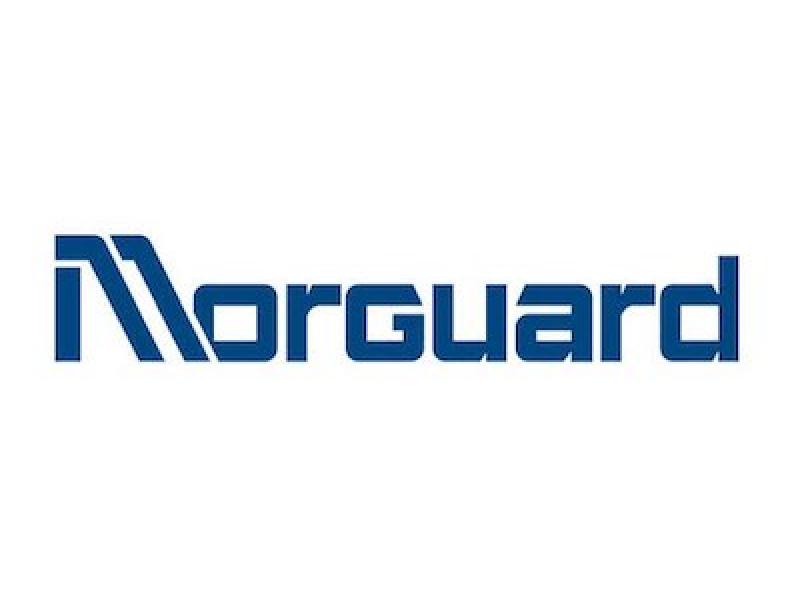
There is very little flexible or co-working office space in the Halifax Region. CBRE’s Andrew Bergen said that could affect growth in the region’s emerging tech sector. (Google Street View)
A lack of flexible office and co-working space in the Halifax and Dartmouth region could begin to hamper growth in the Nova Scotia cities’ emerging tech sector, says Andrew Bergen of CBRE’s Atlantic Canada office.
Speaking during his annual Halifax Market Outlook Breakfast recently, Bergen told attendees growing science and tech companies need quickly scaleable space options because their growth can be highly unpredictable. However, they often don’t have the financial resources required to lease and build-out space on a longer-term lease.
That’s where flexible space providers such as IWG (Regus and Spaces) or WeWork could come into play.
“Essentially non-existent at this point,” Bergen told RENX when asked about available co-working space in the region. “Regus has three or four locations and there are a couple of small local players. . . . Maybe 40,000 (square feet)? It’s not even worth mentioning. There is no presence here in Halifax.”
However, there is a growing tech sector, focused on maritime-related sciences such as oceanographic research and technologies. It’s not a significant factor in the office market – yet – but Bergen says it’s growing steadily and the hope is to create a “supercluster.”
Factors promoting growth in Halifax
Coupled with 1.6 per cent annual population growth, a multiresidential construction boom and a more vibrant downtown due to intensification and redevelopment projects, Bergen said more young university grads are choosing to live in the region.
This is also fuelling growth in the sector.
“I think the wild card is absolutely tech and trying to grow that sector. It seems that everybody is all in on tech from local government right through to individual stakeholders,” said Bergen, who started his career with CBRE in 2008 in Halifax before moving to Calgary to work with Oxford Properties. He returned to Halifax as CBRE’s Atlantic Region vice-president in 2016.
“It’s really exciting. We are putting a lot of resources, a lot of time and money into building this tech sector.
“It comes back to talent. We are seeing more people wanting to stay in Halifax, coming back to Halifax. It is all bubbling up at the moment and it’s really positive for this market.”
Incubators give tech firms a start
Projects such as tech incubator Volta Labs and the Dalhousie University-based Creative Destruction Lab Atlantic are incubating dozens of startups.
“There’s an interesting company called Volta Labs, essentially they are a tech incubator and home to I think over 50 tech startups, giving them the resources and tools to scale their business beyond the research and development phases,” Bergen said.
“It’s been a huge success. They’ve grown quickly and are now in more than 60,000 square feet.”
Volta is based at the Maritime Centre tower downtown at 1505 Barrington St.
Creative Destruction is doing the same sort of thing. “There’s a handful of very successful entrepreneurs in Atlanta Canada that are involved in this program and it’s really about helping tech companies grow and expand in the region.”
When smaller companies are ready to graduate from these programs, they need quickly scalable space due to the unpredictability of the sector. Even in a city with a vacancy rate of almost 20 per cent (in an inventory of about 12 million square feet) that poses challenges.
“Locking into a long-term lease with significant upfront construction costs is not a favourable option for many companies today,” Bergen said in his presentation.
“The business case for a large co- working provider establishing a presence in Halifax should be taken seriously.”
Aging downtown Halifax office inventory
He thinks it will happen, though he’s unsure whether it will come from an existing provider such as IWG, one of the smaller local firms or through a building owner/manager.
“I see the challenge in Halifax just being the age of our inventory downtown. We’ve had some new supply, but over 60 per cent of the downtown office inventory was built before 1980. It’s a dated inventory . . . lacks amenities.
“A lot of landlords are making improvements and I’m not saying the space is tired, but if you are a tech company that is growing, expanding, attracting new talent you’ve gotta find a space that works and that your people can thrive in.”
Bergen said if emerging companies can get the space and other resources they need to grow, it’ll be a major benefit both to diversifying the city’s economy and more specifically, to benefit property owners and managers.
“When you look at some of these companies, like Volta, what they are producing. . . . The entrepreneurial spirit out there is alive and well and it’s really feeding into the market.
“We see that being a major driver over the next three, five, 10 years.”







